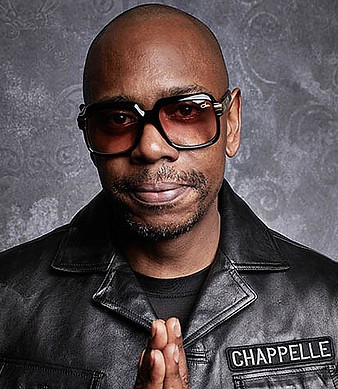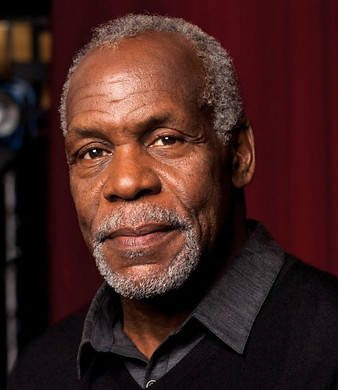
THE
BLACK
CYCLONE
The true story of Charles Follis
The first Black professional football player
Logline
The Black Cyclone is a feel-good, inspirational biopic about Charles Follis, the first Black professional football player, his family, and his unlikely interracial friendship. Through the eyes of a transcending athlete, we explore the nefariousness of racism and the power of love during the birth of America's greatest game.
Summary
CHARLES FOLLIS is about to make history as the first Black professional football player. When his early athletic popularity makes it too burdensome for his

father to maintain employment in Wooster, Ohio, CHARLES must decide to either risk his family's newfound freedom in pursuit of his dream or endure his life as the son of a slave. At the turn of the century, he struggles through the difficulties of youth, hatred, racism, isolation, and failure. However, an unforeseen friendship with his teammate, Branch Rickey, helps Charles find in himself all the qualities it takes to make a champion and true American hero.
WHY THIS? WHY NOW?

If you look at today's NFL, 60% of it is comprised of men of color. However, to fully understand America's new favorite pastime and its current social condition, one must trace the game back to its origin. Like most American institutions, football was built with a racially charged foundation. During this tumultuous time in American history, one man, Charles Follis, was able to transcend racism through his sheer love of sport and the unwavering support of his friend, Branch Rickey. Rickey is well-known for
breaking the color barrier in baseball by signing Jackie Robinson to the Brooklyn Dodgers, and paving the way for Robinson's major league debut in 1947. What's not well-known is that his mission began 40 years prior at the birth of American football. A brutally violent sport in its genesis, where 45 players died on the field from 1900-1905, one young Black man has to overcome high levels of hatred to ultimately win people over and blaze a trail for all athletes of color to follow. The timing could not be better to tell this story within the context of what has truly become the most popular sport in America during the most socially conscious time in American history.
TONE, STYLE & CINEMATOGRAPHIC REFERENCE
The Black Cyclone should blend contemporary techniques with a historical narrative.
12 YEARS A SLAVE
The film uses extremely shallow depth of focus to shoot many of the scenes, centering the story primarily on personal transformation. This is the style we intend to utilize in developing the character of Charles, showing as a naïve, young man who finds courage, faces fears and overcomes adversity. Thus, he develops into a strong adult with leadership qualities and a trailblazer for all sports.

BRIAN'S SONG
This film establishes an iconic friendship between a Black man and a white man. The goal is to mirror its heart-warming aspects with consistent nods to the underlying hardships as well, evoking the same balance of poignancy and camaraderie.

REMEMBER THE TITANS
The overall tone of this film is passionate and hopeful. It tells the story of how an individual can transcend racism.

THE ISSUES THAT ALL OF THESE FILMS DEAL WITH ARE STILL GOING ON TODAY.
CHARACTER BREAKDOWN
CHARLES FOLLIS
Bright, likable, humble, and extremely athletic. His sole, primary vision is to win.
Always willing to accept “people as people." He was 6 ft tall, 200 pounds. Struggles to find his identity in a world that identifies him as nothing more than the son of a slave.

John Boyega

Stephan James

Michael B. Jordan
HENRY FOLLIS
Strong father of an African American family, deeply proud of having brought his family out of the oppressive South to make their home in the free state of Ohio. He observes traditional paternal values and rules, wanting the best for his children, and putting education above any notion of playing sports.

Idris Elba

Chiwetel Ejiofor

Morris Chestnut
CATE FOLLIS
Salt of the earth, loving. Her life is her family. She juggles the balance of Henry’s strictness and their children’s aspirations.

Octavia Spencer

Regina King

Noma Dumezweni
BRANCH RICKEY
Athletic, about 6 feet tall; friendly, thoughtful, intelligent. Born leader, and not afraid to stand up for what is right. Truly driven to win, and a man of character and equality.

Josh Dylan

Zac Efron

Harry Styles
FRANK SCHIFFER
Frank is a businessman and owner of the Shelby Blues football team. Average in stature, Frank stands tall to criticism against his efforts of mentoring and recruiting the first Black football player in history.

Mark Ruffalo

Paul Giamatti

Emilio Estevez
LLOYD KAUFMAN
Large, “Aryan” type, aged by hard work and hard living in the blue-collar factories of Ohio. A racist who hides his insecurities behind his false bravado, Lloyd isn’t going to stand for any Black person “outshining” him or his family.

Michael Shannon

Woody Harrelson

Thomas F. Wilson
CURTIS FOLLIS
Charles’ younger brother. A little more social and personable, with a genuine
heart. Naive and carefree, as with most younger brothers, he looks up to Charles. Curtis has
the Follis “gift” of athleticism as well, and the potential to be as good as Charles at football.

Shameik Moore

Marcus Scribner

Coy Stewart
BUCKEYE CY
Cy has carved out a special place of usefulness for himself, delivering coke stone to factories with his rig and team of horses. A seasoned, older man with wisdom and survival skills indicative of living through the harsh realities of a post Civil War America.

Dave Chappelle

Keith David

Danny Glover
RUTHIE
Kind-faced and sweet-mannered, Ruthie is Charles's love interest. She displays maternal qualities as a caretaker of a young boy on her aunt's behalf.

Hailey Kilgore

Lovie Simone
GLEN "POP" WARNER (Cameo)
An iconic American college football coach, friend to Frank Schiffer. Pop Warner offers Frank and Charles life-changing wisdom and advice.

Kevin Costner

David Koechner

J.K. Simmons
DIRECTORS LIST

Ryan Coogler

Ava DuVernay

Bill Duke

Sean Astin
STORY BREAKDOWN
ACT 1: “The Black Cyclone”
In 1945, Branch Rickey (age 64) sits in his New York office with baseball manager Leo Durocher, discussing the future of the Brooklyn Dodgers. Branch is trying to convince Leo that it’s time to integrate MLB, and to do whatever it takes to sign Jackie Robinson. He begins telling a story about a young athlete he befriended 40 years ago, and how much Jackie Robinson reminds him of this extraordinarily gifted football player.

FLASHBACK (circa 1900): Charles is the eldest son of Henry and Catherine Follis, former slaves who just moved from the south to Wooster, Ohio. Henry and “Cate” have 3 daughters and 3 sons. Their family love, unity and faith are unwavering. Charles enters a new white school in Wooster, where he is invited to play sports, and most importantly, is introduced to this new game called football, where he immediately demonstrates phenomenal talent. Charles leads the development of the first Wooster High School football team, and against all odds, is elected by an all-white team to be their captain.
His running, tackling and scoring abilities are unsurpassed and immediately thrust him into the local town spotlight, earning him the nickname “Black Cyclone”. Charles leads Wooster to two undefeated seasons. He is then noticed by Shelby Blues coach and owner, Frank Schiffer. Frank offers him a contract to play in Shelby for his team.
ACT 2
Curtis Follis, Charles's younger brother, has also begun to show flashes of talent and speed on the gridiron. Curtis has now moved into the starting lineup for the Wooster High School football team. During a game that the entire Follis family attends in support of another potential Follis football star, an unexpected play goes horribly wrong and Curtis dies from a severe injury on the field. We continue to learn of the level of brutality and high numbers of deaths occurring in the early development of professional football. Charles decides to give up football and stay in Wooster to help his family both emotionally and financially. However, racial tensions in town, exacerbated by Charles's growing stardom, boil over when Lloyd Kaufman's henchman assaults Henry and Charles intervenes. As a result, Henry has a change of heart, insisting that Charles accept the offer of the Shelby Blues and leave Wooster, thus becoming the first African American football player in history.

ACT 3
Charles leaves for Shelby, wandering through “shanty-towns” and seeing first-hand the hardships of racism and life. When he finally arrives in Shelby, he sees both the dark and compassionate sides of human nature, on and off the field. This is largely due to his newfound friendship with then 20-year-old Branch Rickey, whom Frank Schiffer has hired as a player and an Assistant Coach for the Shelby Blues. As the two boys develop a sense of unbreakable camaraderie, Charles leads Shelby to an undefeated season. The story comes to a crux when, in an unbalanced Championship matchup between The Shelby Blues and the “unbeatable” Canton Bulldogs, Charles and Branch together find a way to pull off the unexpected.
RETURN TO 1945 - Branch is talking with Leo Durocher in his office, where he instructs Leo to go to Florida and sign Jackie Robinson to the Brooklyn Dodgers. The screen role at the end explains that Charles was also a baseball star with the Cuban Giants Baseball Club of the Negro Leagues. Most importantly, Charles Follis became America’s first Black professional football player. His legacy was almost lost to history, as Charles tragically died of pneumonia in 1910, at the young age of 30.